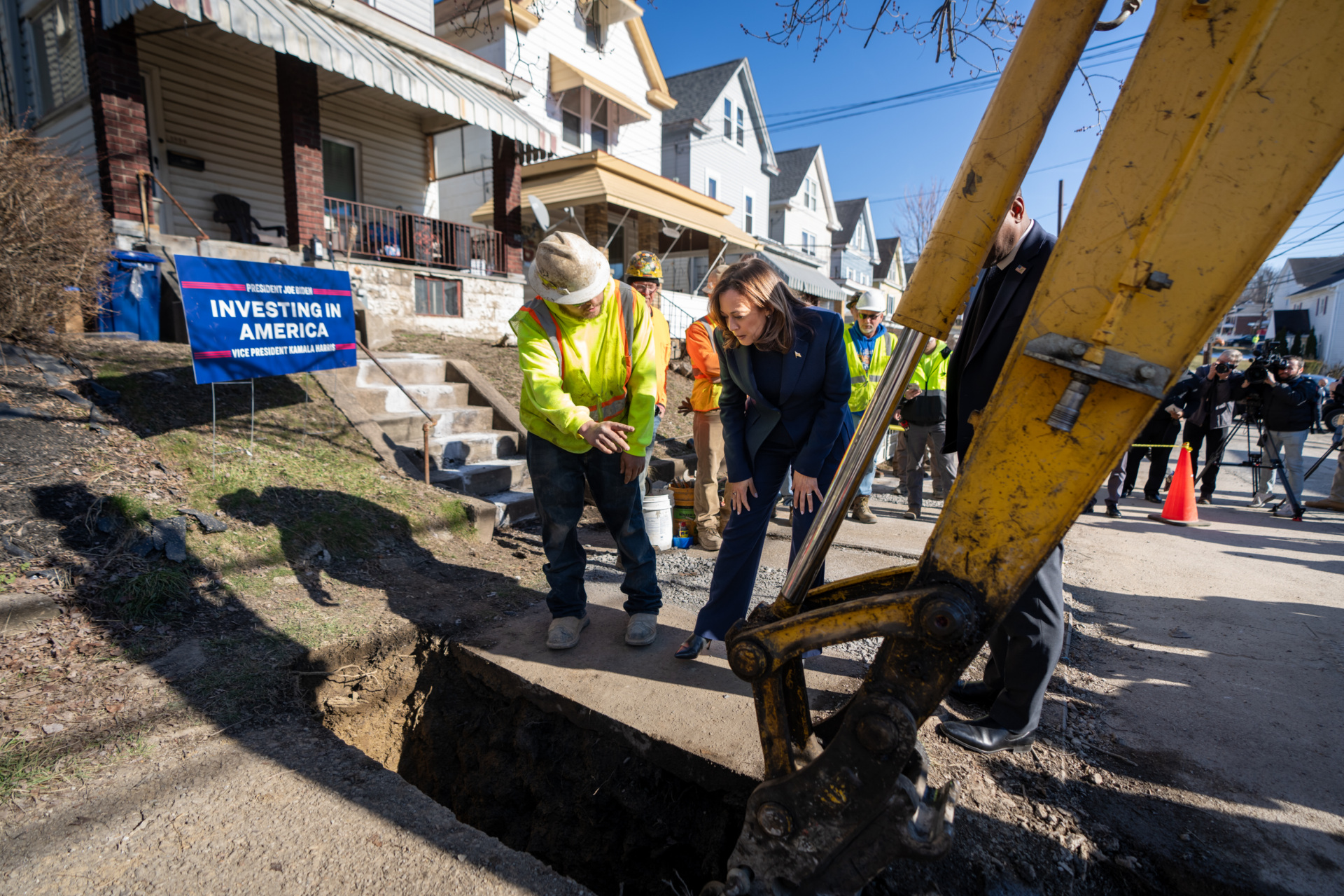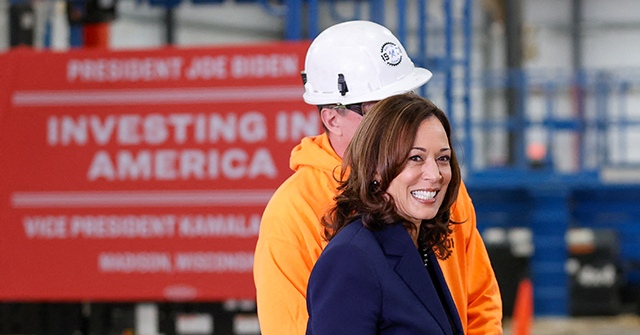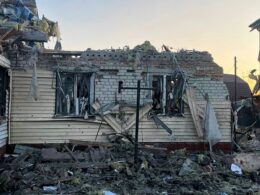Despite Kamala’s Talk of Factory Boom, Manufacturing Is Actually Slumping
The economy is not cooperating with Kamala Harris’s attempt to turn the Biden-Harris economic record into a political advantage.
A key part of the pitch that Harris has made to Americans as she seeks the presidency turns on the U.S. manufacturing sector, which the vice president recently claimed is booming. The trouble is that the manufacturing sector is actually in a serious slump deep enough that it threatens the labor market, the construction sector, and growth in the broader economy.
The Institute for Supply Management (ISM) on Thursday released the results of its latest monthly survey of executives in the manufacturing sector. The so-called Purchasing Managers Index (PMI) slip to 46.8 in July from 48.5 in June. Numbers below 50 indicate a contraction.
Manufacturing has been in contraction for four straight months, according to the ISM. In fact, it has been in contraction for 20 out of the last 21 months.
In July, that contraction got even worse, with the index falling to the lowest level in eight months.
“U.S. manufacturing activity entered deeper into contraction,” said Timothy Fiore, chairman of the ISM survey. “Demand remains subdued, as companies show an unwillingness to invest in capital and inventory due to current federal monetary policy and other conditions.”
The production gauge plunged 2.6 points to 45.9, the worst reading since the economy was largely locked down in May 2020.
The employment measure fell 5.9 points to 43.4, the lowest reading in four years. In a separate report this week, payroll-processor ADP said that private sector manufacturing employment fell in July.
The index of new orders, a key measure of demand, fell 1.9 points to a soft 47.4.
S&P Global’s Survey Also Shows a Decline in Manufacturing Activity
For several months now, the S&P Global PMI was much more positive about the manufacturing sector than the ISM survey. Not anymore.
In July, the S&P Global PMI also recorded a deterioration in business conditions. New orders declined for the first time in three months, so it was only work on outstanding business and replenishing stocks of finished goods that kept output afloat. And even then, the expansion was only marginal.
“Business conditions worsened in July as the first fall in new orders since April caused a near-stalling of production. Purchasing activity is falling and hiring has slowed amid concerns over weaker-than-anticipated sales,” said Chris Williamson, chief business economist at S&P Global.
Unlike the ISM measure of employment, which indicated jobs are shrinking, S&P says employment in manufacturing continued to grow. But only sluggishly—at the slowest pace since January.
Building Factories But Not Jobs
The Biden-Harris administration unleashed a tsunami of new subsidies and tax breaks to convince corporate America to pour money into domestic manufacturing facilities. This has worked in the most direct sense: last month, construction spending occurred at an annual pace of more than $235 billion. Compared with a year ago, construction spending on manufacturing is up 19 percent. Compared with the prepandemic level, it is up a stunning 200 percent.
This has generated jobs—but not manufacturing jobs. So far, all the jobs have been in construction. The economy added 235,000 construction jobs in the 12 months through June, about nine percent of overall job growth. While many of those were in home building, a good portion of those hires went to work building factories.

Vice President Kamala Harris visits a construction site on February 20, 2024, in Pittsburgh. (Official White House Photo by Lawrence Jackson via Flickr)
But hiring in actual factory jobs has been sluggish to nonexistent. Manufacturing employment is up by just 5,000 jobs over the past year. Payrolls grew in just two of the first six months of this year. Last month, they fell by 8,000. Wall Street thinks that manufacturing payrolls probably shrank again in July.
Even the construction jobs are likely to be drying up. Spending on factory construction grew just 0.1 percent in June, suggesting that the subsidy and tax-break driven building spree may be over. It’s very likely that building will remain sluggish in the future because many of the projects undertaken over the last two years were borrowed from the future, pulled forward in time by the subsidies. That’s a tactic that can make sense in an economic downturn but is wasteful in an expansion.
This will make it all the more challenging for Harris and her allies to argue that the Biden-Harris administration’s record has earned Harris a turn in the Oval Office.








